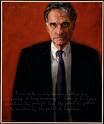"I know that I have to go away. I have to go."
-"Father and Son" by Cat Stevens
 Even though angst between father and son can be traced to the beginning of time, I thought it was strange when baseball star Prince Fielder showed animosity towards his father, Cecil, a former baseball star himself.
Even though angst between father and son can be traced to the beginning of time, I thought it was strange when baseball star Prince Fielder showed animosity towards his father, Cecil, a former baseball star himself.The book on Cecil was that he was a well-rounded family man.
Then I read published reports which stated that Cecil ran through the $47 million that he made as a baseball player.
According to an article in the Detroit News, Cecil lost a ton of money at the casinos and never told his family. Nothing seemed amiss until the foreclosure people showed up. Cecil and his wife then had a bitter divorce.
Sports Illustrated said that Cecil allegedly helped himself to $200,000 of his son Prince's signing bonus. Prince was served by a lawsuit process server seeking Cecil during a baseball game.
 You can see why Prince is somewhat hostile.
You can see why Prince is somewhat hostile.Money woes caused the destruction of the Fielder family, just as it has for many families. Money is a leading cause of divorce. Cecil's hidden gambling spawned a lack of trust.
Although gambling was a huge part of the problem, Cecil also lost money making bad business decisions. That is really sad.
When you have $47 million, you don't need to make ANY business decisions. You just need to hang on to your money. You can invest it conservatively and live the life you want.
The smart thing for Fielder to do would have been to have set some financial goals that would have gotten a decent return with little risk.
If Cecil had put the money in treasury bonds paying 5%, the interest would have been over $2.3 million a year.
Some people can live on $2.3 million a year. I probably can.
There was no need for Cecil to take business risks. He did anyway.
Cecil went into businesses like classic cars, real estate and limousine service.
Most successful business owners start from the ground up and know their industries intimately. Baseball has no correlation to any of the businesses Fielder was in. Umpires don't whisper hot real estate tips in your ear.
Now Cecil has nothing, and his bad decisions helped destroy his family.
Watching the Fielder family feud is painful. Baseball is a sport that worships father-son combinations. If Cecil could have kept it together, he would have been a hero to a new generation.
I don't know the whole story. Cecil blames his ex-wife for the family rift and claims she was a wild spender. He might be right, but I would have liked to have seen how the family would have held up if Cecil had stuck his money in the bank.
You used to hear frequent stories of athletes going broke. It doesn't happen as often now. In recent years, specialized firms have started handling players' money, and many have done a good job.
 Also, baseball players make more money than they used to. I remember when Pete Rose's goal was to someday make $100,000. Now the bat boy probably makes that.
Also, baseball players make more money than they used to. I remember when Pete Rose's goal was to someday make $100,000. Now the bat boy probably makes that.Few people get the opportunity to make really big money, and professional athletes have short careers. Businesspeople can go broke and start over, but Cecil is not going to get another chance to hit home runs.
It doesn't sound like Cecil has learned his lesson. He told Sports Illustrated that he is going to hit the big time with a broadband network. He and Evander Holyfield are partners. I'd feel better about Cecil's chances if his partner were a broadband wiz instead of a former boxer.
Cecil is swinging for the fences in the business world and hoping for a home run.
In business, like in baseball, there are more strikeouts than home runs. Like playing baseball, business is not as easy as it looks.
I really liked Cecil Fielder as a player and hope he gets his life together. Until he does, I can see why Prince is following Cat Stevens' advice.
Prince knows he has to go away and not make the mistakes his dad made.
 Cat Stevens was an incredible writer and performer during his early 1970's hey day and "Father and Son" is one of his great efforts. Cat performs it with incredible passion.
Cat Stevens was an incredible writer and performer during his early 1970's hey day and "Father and Son" is one of his great efforts. Cat performs it with incredible passion.For some reason, Cat is the only person who seems to be able to do the song well.
Johnny Cash and Fiona Apple did a bad duet on Johnny's last album. They are two incredibly talented artists (and two favorites of mine). The pairing should have
 worked. It did not.
worked. It did not.The timing of the song is off and Rick Rubin, the producer, did not know how to use Fiona effectively. I keep listening to the song hoping it will grow on me. It does not.
As bad as the Johnny and Fiona effort was, it is far better than one by Rod Stewart. His is almost impossible to listen to.
 I really like Rod too, but would rather be subjected to a week of "Do You Think I'm Sexy" than to listen to his version of "Father and Son" again.
I really like Rod too, but would rather be subjected to a week of "Do You Think I'm Sexy" than to listen to his version of "Father and Son" again.Father and Son is a great song that apparently only Cat Stevens can sing.













